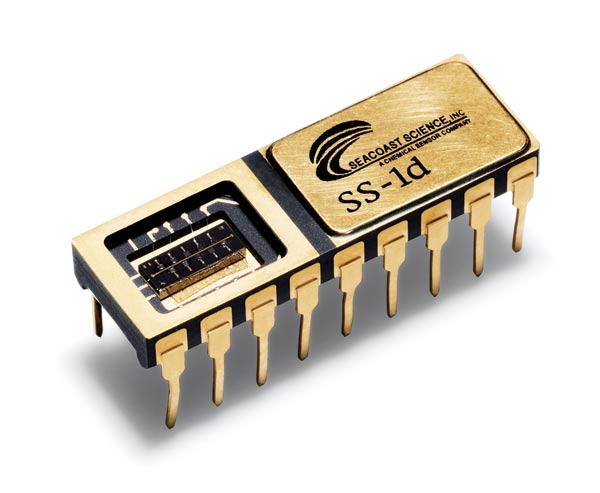Cheaper Chemical Sensor

A new portable sensor system detects airborne organic chemicals about as accurately as a $25,000 machine confined to a lab. The device’s sensor element (above) holds an array of polymers deposited between capacitance plates; their ability to store electrical charge changes in specific ways when certain molecules are absorbed, enabling the device to identify those agents. The system incorporates a polymer called BSP3, invented at Pacific Northwest National Laboratory, that is especially responsive to compounds such as nerve agents and certain pesticides.
Product: SeaPORT SC-210
Cost: About $3,000
Source: www.seacoastscience.com
Companies: Seacoast Science
Keep Reading
Most Popular
Large language models can do jaw-dropping things. But nobody knows exactly why.
And that's a problem. Figuring it out is one of the biggest scientific puzzles of our time and a crucial step towards controlling more powerful future models.
How scientists traced a mysterious covid case back to six toilets
When wastewater surveillance turns into a hunt for a single infected individual, the ethics get tricky.
The problem with plug-in hybrids? Their drivers.
Plug-in hybrids are often sold as a transition to EVs, but new data from Europe shows we’re still underestimating the emissions they produce.
Stay connected
Get the latest updates from
MIT Technology Review
Discover special offers, top stories, upcoming events, and more.